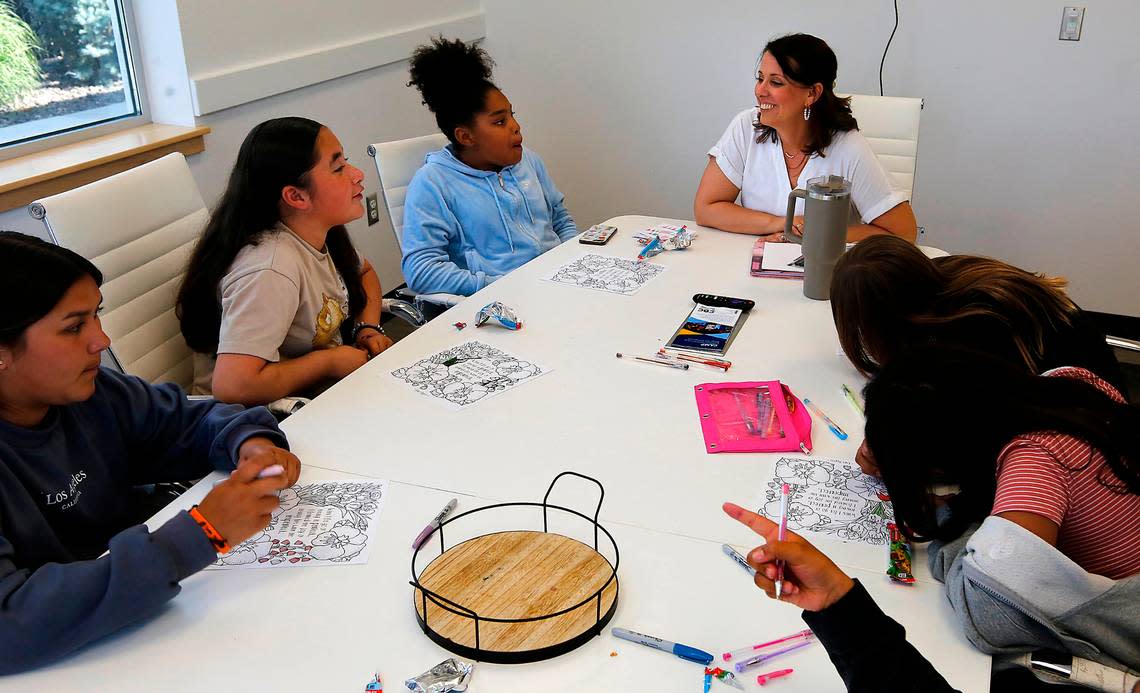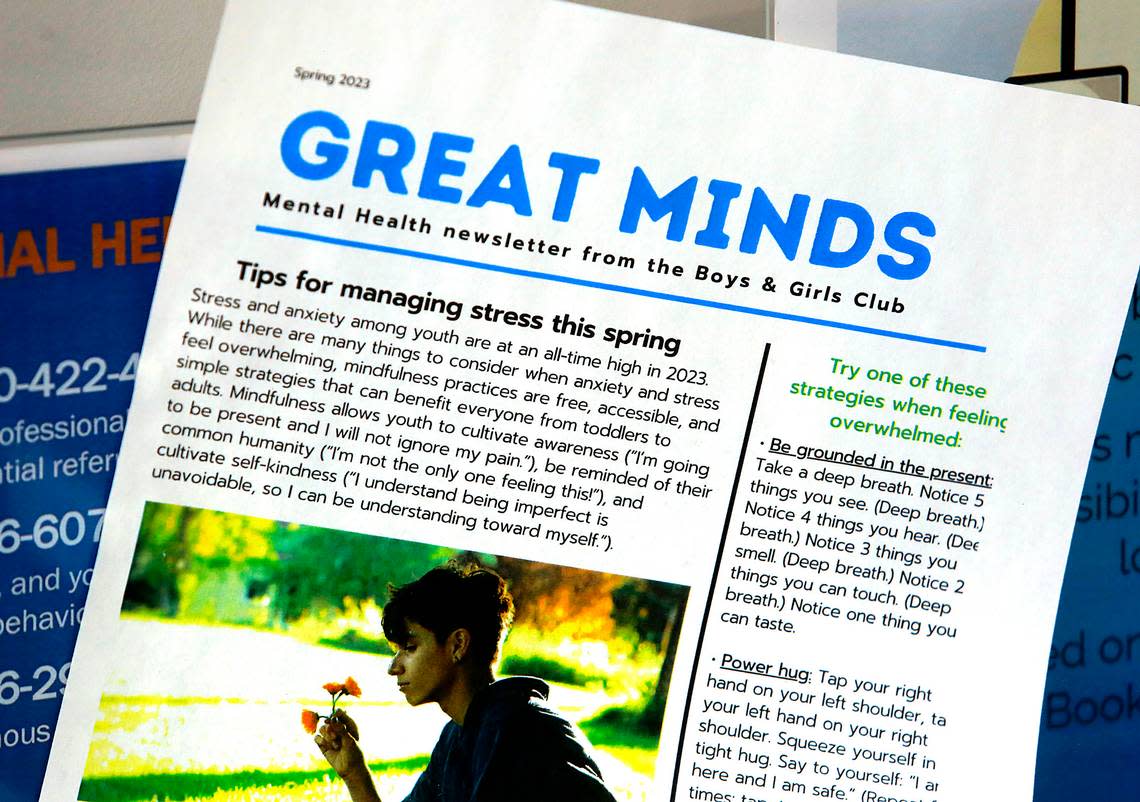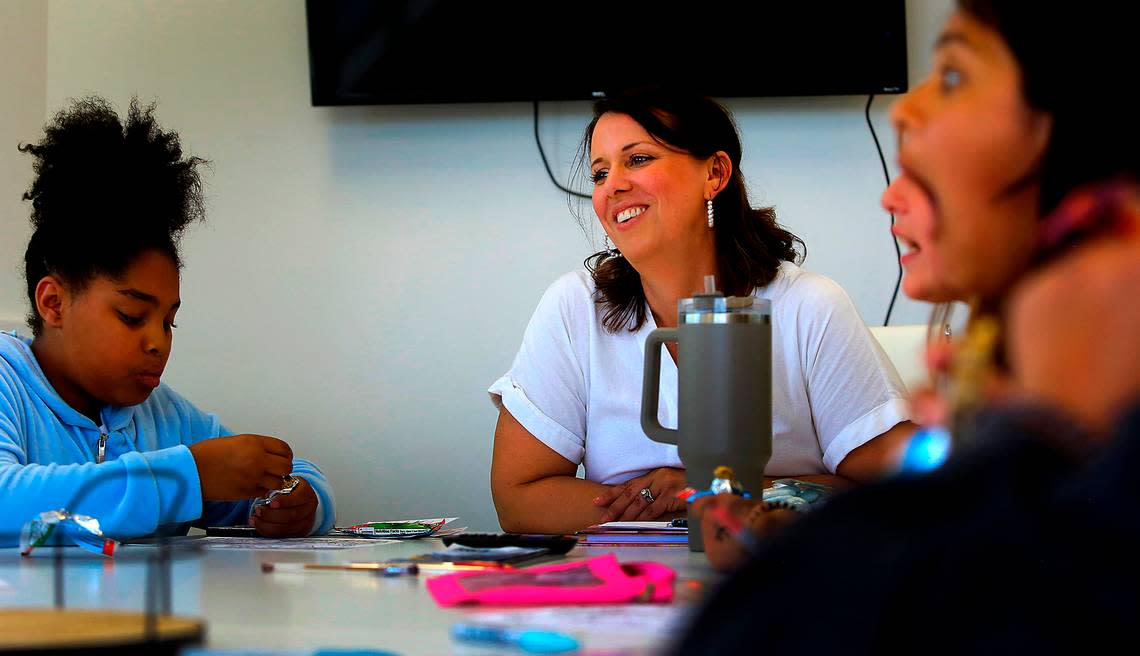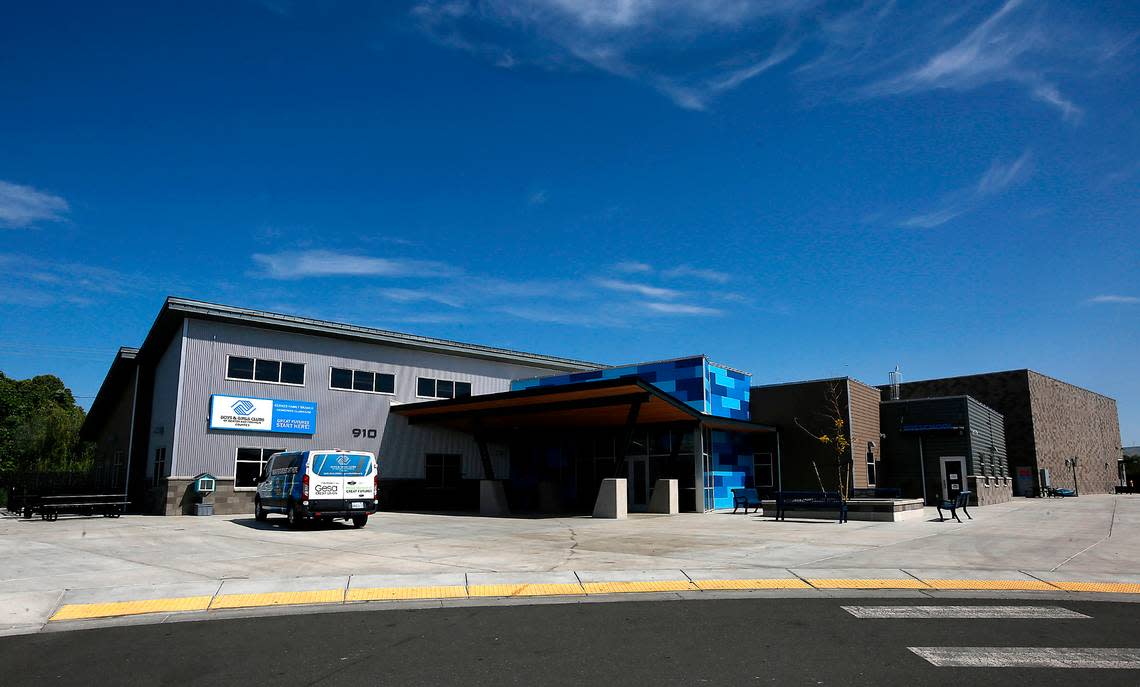Tri-Cities program teaches traumatized kids to balance their feelings and trust again
As the school year came to a close, staff at the Boys and Girls Club of Benton and Franklin Counties found they’ve also learned a lot this year.
A year into a focused effort to put mental health at the forefront of their work, the staff members have learned as much about themselves as they have the kids they work with.
That’s because their efforts to teach kids how to recognize and regulate their feelings is centering Trauma-Informed Care.
Director of Behavioral Health Jenny Vollmer is helping them learn to recognize the “why” behind negative behaviors, and how to build trust and help.
“It’s really kind of the propelling force of what my work has been over the past six months,” Vollmer told the Herald.
“To train up our staff, to learn some really simple processes we can do to recognize that our kids in our programs have undergone trauma, (to learn) what trauma is, to be able to understand and respond more thoughtfully to those everyday things so we’re not retraumatizing them.”
Trauma-Informed Care isn’t just a technique used for therapy. It’s a tool that can be incorporated into everyday interactions with students and staff.
Trauma can be caused by a number of factors ranging from abuse to neglect to discrimination or adverse life events, according to the Department of Health and Human Services’ Substance Abuse and Mental Health Services Administration (SAMHSA).
Trauma-Informed Care recognizes the prevalence of trauma, and the adverse effects it can have on someone’s life.
These negative impacts include health problems, increased risk of substance abuse, behavioral issues and even the way someone responds to care or treatment, according to the agency.

Disregulated behavior
Vollmer said that often children can recognize when they’re struggling with emotions they can’t manage, but don’t have the vocabulary or communication skills to explain what’s happening.
That’s where the importance of staff recognizing trauma responses comes in.
Has something triggered an episode of antisocial behavior? Did something bad happen to them at school? Are they just overwhelmed?
Staff are learning to keep questions like that at the forefront of how they approach problems, so that their response is compassionate and understanding.
“Just remember that all behavior is communication,” Vollmer said. “That often times a kids’ really challenging behavior is a cry for help because they’re feeling overwhelmed in their little bodies and they don’t have the skills or languages to articulate those things the way that adults can. I think that’s really the most important thing, we want to be kind to these kids, to give them a safe place.”
Vollmer said staff are learning simple strategies to recognize what’s contributing to the child’s outburst. From checking to see if the lighting or noise level is overwhelming, to recognizing when yelling to get a kid’s attention might be setting them off, staff are learning better ways to approach students in difficult situations to help build trust.
Vollmer said that while kids are often praised as resilient, they feel things deeply.
She wants staff to be cognizant of themselves in these situations. Are they yelling from across the room to get attention of a student? Are they standing over a child who thinks they’re in trouble? Are they reacting or acting thoughtfully?
It can be helpful to recognize their own body language and what it communicates to the student in that moment. These little things help build trust with students who have gone through trauma, and can eventually enable a breakthrough.
Building resiliency means being able to adapt and cope with difficult situations. It’s a skillset they want to imbue students with, so that when they are struggling, they have a toolkit of coping mechanisms to help them get through it.

Caring for ourselves
Vollmer said that the staff and volunteers have also learned a lot, and the importance of taking care of themselves.
As a former teacher and school counselor, she knows how demanding it can be working with children struggling with their emotions.
She tries to stress the importance of self care to staff, so that when they’re on, they’re able to model the same emotional resilience they’re trying to build in the children.
“It really invites us into examining our own personal triggers. Why am I responding in this way? Why am I getting dysregulated with a kid that’s 5 or 10 years old?” she said. “It’s really an invitation to self care. Working with kids, especially these days, is not easy. Kids are overwhelmed and they’re dysregulated a lot.”
Like Vollmer, the club’s Chief Marketing Officer Josh Peterson spends a lot of time at the organization’s 17 sites at clubhouses and school campuses in the Tri-Cities area. Over the past year he’s had a front row seat to the development of staff and students alike.
“It’s incredibly inspiring to watch the (kids) grow and see those light bulb moments when they understand this, or articulate this or identify different things,” he said. “It’s really fulfilling for a lot of the club staff as we work to carry out our mission through this work — which is to empower young people who need us most, to reach their full potential as productive, caring and responsible citizens.”
Peterson said he’s seen so much growth from staff in their day-to-day interactions with the children, and as a result seen stronger bonds form.
“There’s more awareness from staff,” he said. “It’s really equipping them to be more successful as the youth development professionals they are.”
Building these bonds and helping students learn to regulate their emotions also removes a major barrier toward the other learning and development staff are focused on. Students are better able to focus on programs ranging from after school help with homework, to combating summer reading loss and even learning new skills.

Resiliency
While students may seem happy to just be back in class and around their peers, Vollmer said it’s important to recognize they’ve gone through the same difficulties and trauma that we all have through the pandemic.
She said that the youngest children especially seem to be struggling more as they enter school because many didn’t get the social interaction they needed when they would have been in prekindergarten or Headstart.
“People always say that kids are so resilient, and I think that’s true to a point, but I think we also need to remember that kids are really deeply affected by their experiences,” Vollmer said. “It may look like we’ve all sort of bounced back and are back to normal … and going 100 mph like we used to pre-pandemic, but I really think we can’t discount the fact that we are humans and children are deeply effected by experiences.”
The same can be said for adults, but a key difference is that adults have the tools needed to adjust or know how to find help.
Recognizing this can help staff identify when the stress of the pandemic has compounded with other trauma happening in the lives of students.
“Yes we are resilient beings, but we are all human and were deeply effected by what we went through the last few years,” Vollmer said.

Passion project
For Vollmer, this work is also very personal.
She has been a teacher and school counselor, but it was when her family adopted her two youngest daughters, now 11 and 13, that she realized that traditional approaches to behavioral issues weren’t enough.
“They came from really, really deeply traumatic backgrounds,” she said. “In raising my girls the last five years, I had to really throw out, everything I ever knew about children and how they learn and exist in families. I did not really understand it, until I understood in my home, how much trauma effects kids, and how it is completely life changing.”
Because of their background, she said the girls struggled to just exist in the same spaces as other children their age.
“They’re my why, and I’m very passionate about it ... ,” she said. “We need to have a different way of approaching children who may have had adverse childhood experiences. We need a more sensitive, honoring way of making them feel safe.”
Trauma-Informed Care can require a lot of time and patience, so staff don’t expect instant results. Instead they work with the students to build them up.
In addition to the staff trainings, Vollmer leads focused groups with students that site directors think might need a little more help.
Those groups can run for weeks or even months, using fun activities to help build trust, give the kids the vocabulary they need to express themselves and then feel safe enough to learn to manage what Vollmer calls “big feelings and emotions.”
Parents interested in learning more can reach out their local site director or grab a copy of the “Great Minds” mental health quarterly newsletter from the organization.
